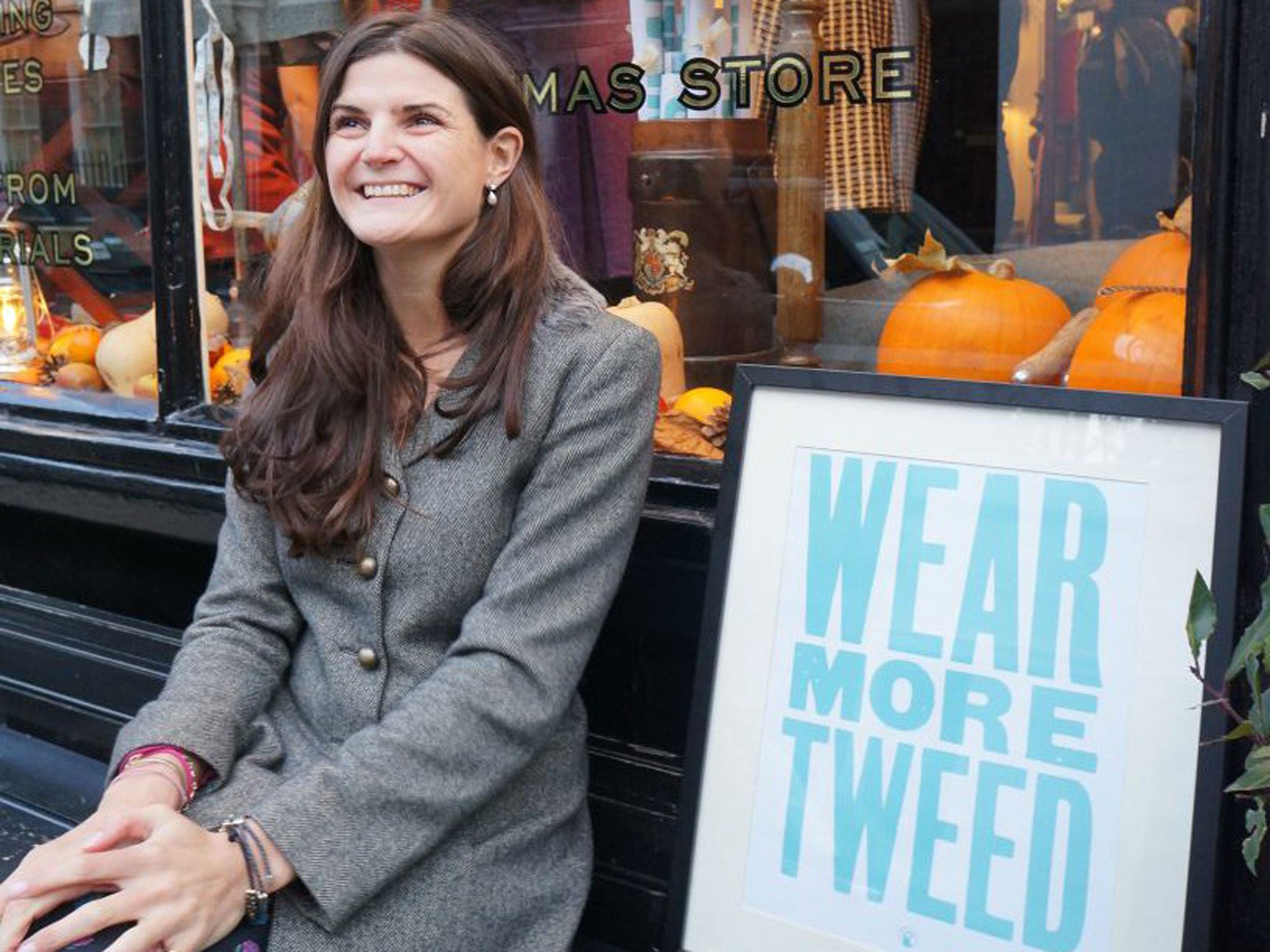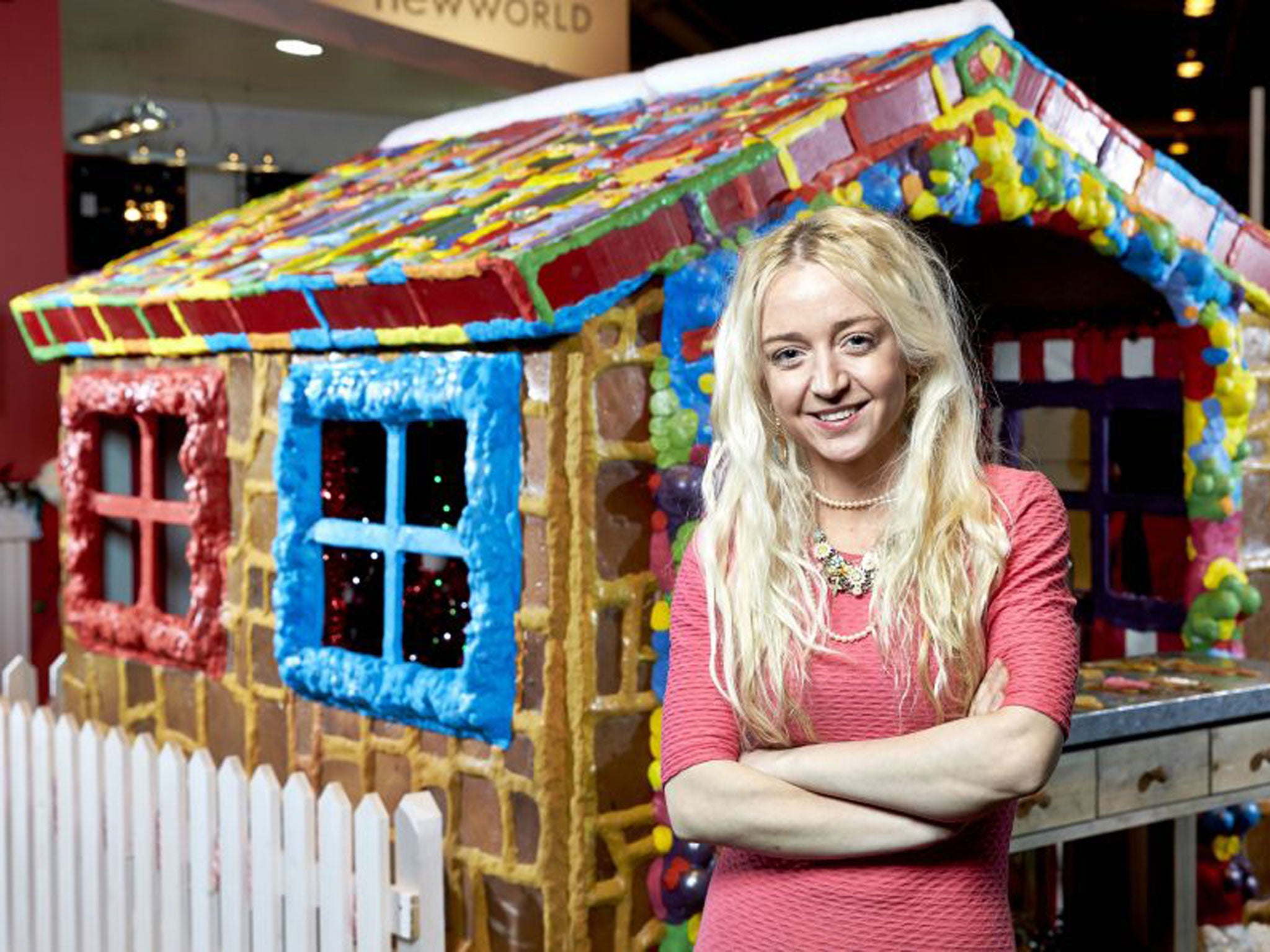School for Creative Startups is teaching artists the expertise they need to run a business
Artists often struggle to turn a profit from their creations due to a lack of understanding of business, says Sarah Cassidy

Your support helps us to tell the story
From reproductive rights to climate change to Big Tech, The Independent is on the ground when the story is developing. Whether it's investigating the financials of Elon Musk's pro-Trump PAC or producing our latest documentary, 'The A Word', which shines a light on the American women fighting for reproductive rights, we know how important it is to parse out the facts from the messaging.
At such a critical moment in US history, we need reporters on the ground. Your donation allows us to keep sending journalists to speak to both sides of the story.
The Independent is trusted by Americans across the entire political spectrum. And unlike many other quality news outlets, we choose not to lock Americans out of our reporting and analysis with paywalls. We believe quality journalism should be available to everyone, paid for by those who can afford it.
Your support makes all the difference.When Pip Howeson trained as an apprentice tailor, she dreamt of having her own business. She hoped to liberate women from ill-fitting high-street coats and make made-to-measure fashion more accessible to people everywhere.
But for years her dream looked as if it would remain just that. Although she continued to make coats for her friends, her tailoring remained a hobby while she worked in a series of jobs because she had no idea how to turn her passion into a career.
But last November, her dream became a reality when she secured £50,000 of start-up funding for her business making high-end tailored jackets and coats from British tweeds and fabrics. Today she makes coats costing from £1,000 upwards and is looking to open her own atelier in central London.
Howeson is one of hundreds of "creatives" who have graduated from the School for Creative Startups, a social-enterprise business which aims to teach creative students the skills that they need to transform their talent into a viable business.
Since it was founded in 2010, the school has helped to kick-start thousands of businesses and provided more than £12m in government loans. It aims to give creative entrepreneurs essential tools for starting a business and teach them about cash flow, marketing, pricing and understanding their market.
Howeson, 31, dropped out of university in her first year of studying agriculture, before starting an apprenticeship with designer Selina Blow. She enrolled at the School for Creative Startups after stumbling across an article about it by chance.
"I had been making jackets for friends and really wanted to turn it into a viable business but I lacked the confidence to do it," she says.
"The School for Startups gave me that confidence but also took the loneliness out of it. It can be very isolating starting up a new business when you sit there late at night surrounded by profit-and-loss documents. They provided me with a real support network and helped me pitch to investors."
The School for Creative Startups was founded in 2010 by the Californian entrepreneur Doug Richard, who shot to prominence in the UK when he appeared as a "dragon" in the first two series of Dragons' Den.
Richard had founded the original School for Startups in 2008, after realising that it was a lack of basic business knowledge – rather than fear – that was stopping many people from starting their own companies. In 2010, he followed this with the School for Creative Startups, believing that creative people needed their own specialist programme designed specifically for their needs, which aimed to be low on jargon, high on confidence boosting and providing lots of one-to-one support.
The year-long part-time course costs £3,500, though bursaries are available. For their money, students get 120 hours of teaching and attend business boot camps, where they attempt to whip their business plans into shape and receive help from mentors such as the television presenter and gastronome Loyd Grossman and the designers Cath Kidston and Anya Hindmarch.
Creative industries currently account for more than 10 per cent of exports in the UK and generate £70,000 a minute for the UK economy. Creative industries are worth £71.4bn a year in the UK – yet Richard was surprised to discover that little was being done to help creatives to transform their business ideas into a reality.
"It came out of the fact that I am an experienced angel investor," he says. "After Dragons' Den, I did a lot of public speaking. Some of the same questions came up over and over again and I realised that people were not starting up businesses because they were afraid of it, but because they simply didn't know what to do."
"It is not tremendously difficult to start a business but you need to know how to do it. Business is not that complicated. All you have to do is make a sustainable profit, and profit simply means that you make more than you spend. Some people think the size of the business is important; it isn't – only the size of the profit is. Let's be clear that profit isn't a dirty word. It's a wonderful thing – it means that your business has found a way to give people something that they want."

The course, which has now run for three years, offers places to the creatives behind 100 start-up businesses every September.
Last month, the school's own Makegood Festival saw more than 200 graduates from the programme showcase their businesses to industry buyers and the public during the four-day event.
Matthew Hancock, the minister for Skills and Enterprise, spoke at the festival, praising the "intensely powerful spirit of creativity and entrepreneurship" in Britain today and describing small creative businesses as "the lifeblood" of the economy.
But many of the school's recent graduates believe that the UK education system currently fails to provide enough support for creative students.
Pip Howeson argues that had she been taught basic business skills at school then she might have started her own business much sooner. She says: "I think a lot of parents and teachers push people to go and pursue careers with good, steady salaries like medicine and dentistry, rather than following their passion and doing something that they love.
"The fear of an irregular salary and the push towards more conventional careers scares many potential creatives away. The rising cost of university means that students are looking for a good salary in order to pay back their debts and many are scared to take the risk.
"More young people should be taught basic business skills at 16 as that's an important age when you start to make choices."
Another graduate of the School for Creative Startups is Connie Viney, 27, from Enniskillen in Northern Ireland, who makes sculptures out of cakes. Her work includes creating an entire room out of cake, an 8ft walk-in wedding cake, and the world's first interactive "tweeting cake", which invited people to tweet a message which was then printed onto edible paper, which was then blown on to the cake.
Viney completed her course at the School for Creative Startups this summer, having previously graduated with an MA in history of art and fine art from Edinburgh University. She credits the school with transforming her from an unworldly artist into a businessperson. She says: "I did a cake installation for my degree show, which got a lot of press. But I felt a bit lost after I moved to London. I decided to do the School for Startups because although things were going quite well for me, I felt that I was jumping from commission to commission and didn't have any idea about how to run a business. I knew I was probably making some quite foolish decisions, even though I was having quite a lot of success. Having gone through the course, I now feel completely different. It also taught me to value myself as a creative person. Before, I would have asked for £150 for a big installation that would have taken between one and two months to make, whereas the school would say I should be charging £300 a day as a professional creative."
She believes that more needs to be done to boost the status of art in schools. She says: "I think there's a major problem with creativity and art education. I think it is just appalling that we are not encouraged to value ourselves as creative artists and that being a creative person is not seen to be as valuable as entering some other professions. Art was never taken seriously as a subject when I was at school. It was a real struggle to get people to respect my decision to study fine art at university. Even the word entrepreneur was never mentioned."
Doug Richard believes that creative and arts degree courses should be overhauled to include basic business skills.
"We should be coupling the kind of curriculum that we provide with what is already on offer in the education system," he says.
"I am sure that there will be people who will think that it dilutes the creative output, but I think degree courses should certainly include it. I think it would be nice if people understood how society works and where wealth comes from. People can lose sight of that.
"I am not teaching people how to be entrepreneurs. I do not like mushy vagueness. I am saying, 'These are the skills and I will show you how to use them'."
Join our commenting forum
Join thought-provoking conversations, follow other Independent readers and see their replies
Comments